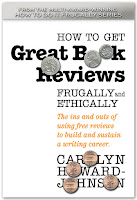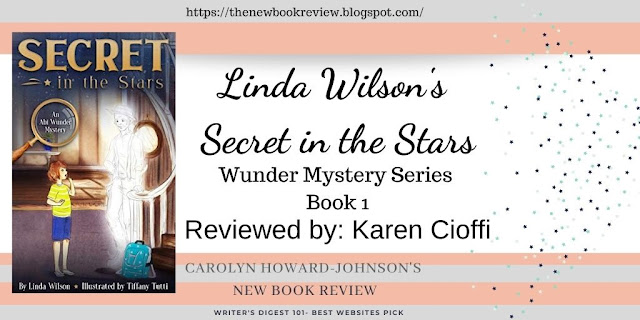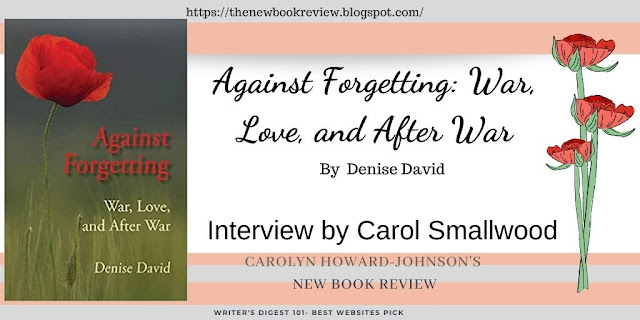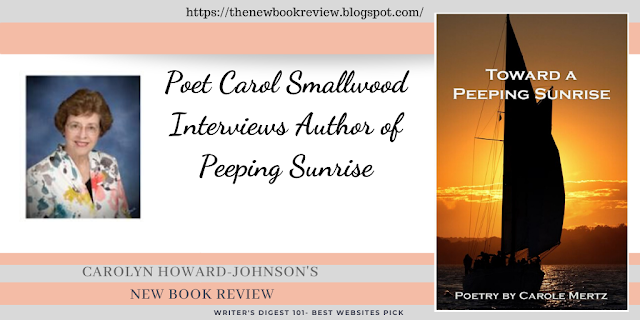Title: Toward a Peeping Sunrise
Author: Carole Mertz
Prolific Press, 2019
ISBN 9781632751898
$7.95
Interview by Carol Smallwood
Carole Mertz, author, poet, and editor, has had works published in literary journals, U.S., Canada, Great Britain, and Africa. An Oberlin College graduate, she’s Book Review Editor for Dreamers Creative Writing;reader of prose and poetry for Mom Egg Review; member Prize Nomination Committee for Ekphrastic Review; advance reader WNBA 2018 Poetry Contest. Kendra Boileau, Penn State University Press noted: “Mertz is a master of poetic form, imagery, sonority, and wit.”
Smallwood: Your poems show a knowing of the darkness but also of the sunrises while “…searching for a distant view of everything.” The poems encompass childhood, courtship, marriage, maturity, and the reader is advised to “hang on to your memories.” How did you decide the chapbook’s title?
Mertz: Thank you for searching out my themes and encapsulating them so well. I suppose I wanted a title that would show a kind of awakening. For Toward a Peeping Sunrise I borrowed a line from one of the poems.
Smallwood: You’ve said your chapbook follows an arc. What do you mean by that?
Mertz: I suppose there’s an arc to the thematic subdivisions, simply beginning, middle, end. But what I mean has more to do with the tempo of the poems. Progressing from one to the next with a rising tempo, as in “Dolly’s Broke” moving faster and louder into the implied dangers in “Ballast.” These urgencies settle down in the two final poems toward a quiet diminution, as if equivalent to a musical crescendo and decrescendo.
Smallwood: What have you learned from creating this chapbook?
Mertz: Selecting from fewer number of poems made it easier for me to arrange them around given themes. (When I worked with larger selections, I found I was unable to organize the greater number of poems coherently because too much of my work was as yet eclectic and impossible to group.) I also learned lessons after the chapbook’s publication—that you’re never prepared enough for the PR work that must follow. Writing is only the beginning; marketing and continued networking are additional responsibilities. These inevitably intrude on the writing time. Learning to balance these activities is always a challenge.
Smallwood: When did you begin writing poetry? Was it the first genre you used?
Mertz: I began writing poetry about twelve years ago, though I was then taking a course in writing short stories. A first poem about a snowstorm was accepted by a small digest. The success of it and seeing my name in print got me hooked on poetry, though I hope vanity was not the only motivator at the time. Soon a mystery won second place at the Toasted Cheese Literary Journal. But doing poetry became and remained the dominant genre for me.
My very first serious work, however, was writing nonfiction. After a week-long course at Concordia Publishing House, my writing, and that of my husband, was accepted for publication by CPH. During this shared project, we each wrote on 15 separate themes. I must admit, I enjoyed the subtle competitive element that entered in— I wanted to write as well as my husband.
Smallwood: Why did you choose the particular publisher for your chapbook?
Mertz: When Prolific Press chose my manuscript, I was approaching one of my decade years. Their acceptance came as a nice birthday present. The owner of the press promised a deliberate schedule that he followed throughout, meeting every one of his projected deadlines. Working with Prolific Press for a first volume was a pleasant way to learn the steps needed in matters of cover design, collection of blurbs, and decisions about layout. A former writing school instructor had persistently advised students to self-publish and I had planned to do that. But everything requires time and know-how. Working with Prolific Press was a non-stressful alternative.
Smallwood: What are some magazines/anthologies where your essays, stories, poetry, appear?
Mertz: Going back a few years, I’ve had work in Arc, Copperfield Review, CutBank, Conium Review, and World Literature Today. More recently I’ve published a series of reviews at Mom Egg Review, Eclectica, and Dreamers Creative Writing, with poetry at Indiana Voice Journal, The Write Place at the Write Time (recently discontinued), Eclectica, The Ekphrastic Review, and elsewhere. I was pleased to have a poem included in Journal VII, the 2019 anthology issued by the Society of Classical Poets, an online poetry site I regard as one of the finest.
Smallwood: Why is that site of interest to you?
Mertz: The Society of Classical Poets furthers the writing of poetry in classical forms. I regard the preservation of these techniques as important as, for example, the retaining of classical forms in music. One cannot perform an Aaron Copland, for example, before one has studied a Beethoven Sonata or perhaps a Debussy Prelude. I don’t mean to preach, but I believe unless we preserve the old forms, we lose a great deal. A number of fine poets today are writing sonnets of equal caliber to Keats or Shakespeare, though written in contemporary language. The Society promotes these modern-day writers. The Society also values the concept of beauty which seems so lacking in much contemporary work I read.
Smallwood: Where are your most recent publications?
Mertz: In addition to Toward a Peeping Sunrise, recent reviews appeared in Main Street Rag, Into the Void, and Dreamers Creative Writing. I like the method of publication at Dreamers. First a 300-word review is published in the print edition. This is followed by a 700- to 1000-word review printed online. I like the process of writing on the same material in both the shorter and longer form. The long form first, and then condensed. But sometimes the process is reversed.
Smallwood: What poetry writing challenges have you won?
I was happy to win several poetry challenges issued by the Wilda Morris blogspot. Morris’s imaginative orinots differ each month. They taught me new ways of approaching poetry. One could write about colors, or about “memories of my father”, or use of numbers in poems—simple approaches, but they always taught me to innovate and also introduced me to classical poets and contemporary poets I hadn’t yet known.
Smallwood: What’s your association with the Mozart Academy in Salzburg, Austria?
Mertz: My studies at the Academy gave me a year of learning not only in music performance (I’m a professional pianist and organist), but also in European history, the fine arts, and the German language. Seeing major artworks face-to-face in the museums of Paris, Vienna, Florence, and Rome created impressions during my early student days that have remained throughout my life.
Smallwood: You write with ease poems based on a picture. How do you select the pictures and what’s the name of this poetry form?
Mertz: In my family, two sisters are visual artists. Not a painter, myself, it became very satisfying to write my own impressions of paintings in poetic form, though initially I knew nothing about ekphrasis, which is an artist’s interpretation of another artist’s work. During 2019, I suddenly encountered all these wonderful works at The Ekphrastic Review, both the writers’ and the painters’, and began submitting my own poetry there. Lorette C. Luzajic, owner of the review, makes it all very inviting. She simply requests poems (preferably unrhymed) or nonfiction pieces based on what you see or feel when viewing a work. “Have fun while you write,” she says. At her site, you can select a visual of your own choice or respond to one of her bimonthly ekphrastic challenges. These have ranged from works by Rothko to Joan Miro to Franz Kline. I’m musing here, but I suppose one could also write ekphrasis based on aural works, as well, or based on architectural constructions. Camille Paglia, for example, wrote an astonishing ekphrastic essay on the altar and the Pope’s Chair at the Vatican. Similarly, passages within a novel I’m reading (Josephine Wilson’s Extinctions) are written as ekphrasis on Marcel Breuer’s Wassily Chair, photos of which are included in the novel.
Smallwood: In the first poem in Toward a Peeping Sunrise, a chapbook divided into three sections, “Singularity” appears in the title—a word often used in physics. How did you come to select it?
Mertz: I hadn’t thought of “singularity” as a physics term. I merely wanted a word to indicate something unique, something happening only once. If I may add something about that poem, “Seeing to the Singularity…” it’s almost shocking to me that I should have published a poem of self-affirmation.
Smallwood: Why does that surprise you?
Mertz: In my old Pennsylvania Dutch upbringing, there was always the underlying tenet, spoken or unspoken, that one should avoid bragging in all its forms. This comes from the religious restrictions I experienced at the time.
Smallwood: What are some of the topics you cover in your essays?
Mertz: I like to offer tips I think might be of use to beginning writers. I’ve written about how to establish good relations with editors of literary journals, the importance of MOOC learning, meeting writing deadlines, how a bird can teach you about persistence, about the selection of nominees for the Pushcart and other prizes, etc. But writing reviews is an entirely different matter.
Smallwood: Please explain MOOC learning:
Mertz: Many MOOCs are offered online free of charge. MOOC stands for Massive Open Online Course. A participant simply logs into the website to sign up. Through interactive participation the writer MOOCs put writers in contact with numerous other writers across the globe.
Smallwood: Please tell us what you mean about a bird’s persistence:
Mertz: I wrote an essay that drew the parallel between the patience required of the writer and the persistence of the robin, sitting on the nest until her fledglings are hatched. The writer must use the same persistence as the bird, remaining at the desk until the work is completed. The bird sits long hours, she doesn’t run off for a “snack” until the male robin appears to take her place on the nest. Our writing requires similar care and devotion.
Smallwood: What appeals to you about writing reviews?
Mertz: Each volume taken up is like receiving an entire new personality into my life. I’ve reviewed collections by Mary Jo Bang, Layli LongSoldier, Judith Swann, and Dovali Islam, for example. Each artist has her unique view, style, and content. It’s like entering a new country, each time. I don’t critique until I feel I’ve become thoroughly immersed in the given work, and personality, to the extent possible. Reading contemporary artists is what makes this business of writing such an adventure.
Smallwood: You look squarely at time and the importance of memories in free verse and formal. Your poem “Waking” is in a form reminiscent of Emily Dickinson. The poem looks at space, time, and “tiny tufts of pure thought.” Who are your favorite poets?
Mertz: Dickinson is certainly a favorite. But there are so many. Among the classics, Keats in particular. Then Whitman and Frost. Of late, Stafford, W.S. Merwin and Bishop. I’ve loved Wallace Stevens who always gets at things “not quite sayable,” to quote Carol Frost. And then contemporaries such as Gluck, Harjo, and so many others.
Smallwood: What are you reading now?
Mertz: My latest are Joan Gelfand’s You Can Be a Winning Writer (I hope its wonderful title rubs off on me!) and Clive James’s Poetry Notebook in which he offered reflections on the intensity of language.
Smallwood: Are you working on another chapbook or poetry collection?
Mertz: It’s my intention. As I write more, it’s fun to consider how certain themes might combine into a cohesive whole. April Ossmann, author of Event Boundaries, a poetry collection, offers strategies in the ordering of poems in a collection. These useful tips appeared in The Practicing Poet, Diane Lockward, Editor.
HOW TO REACH THE INTERVIEWEE
Readers can view Mertz's profile writer at Poets & Writers. Her website, as yet under construction, is www.carolemertz.com
MORE ABOUT THE INTERVIEWER
Carol Smallwood, Marquis Lifetime Achievement Award recipient, is a literary reader, judge, and interviewer; her last poetry collection is Chronicles in Passing.
MORE ABOUT BLOGGER AND WAYS TO GET THE MOST FROM THIS BLOG
The New Book Review is blogged by Carolyn Howard-Johnson, author of the multi award-winning HowToDoItFrugally series of books for writers. Of particular interest to readers of this blog is her most recent How to Get Great Book Reviews Frugally and Ethically (http://bit.ly/GreatBkReviews ) that covers 325 jam-packed pages covering everithing from Amazon vine to writing reviews for profit and promotion. Reviewers will have a special interest in the chapter on how to make reviewing pay, either as way to market their own books or as a career path--ethically!

This blog is a free service offered to those who want to encourage the reading of books they love. That includes authors who want to share their favorite reviews, reviewers who'd like to see their reviews get more exposure, and readers who want to shout out praise of books they've read. Please see submission guidelines on the left of this page. Reviews and essays are indexed by genre, reviewer names, and review sites. Writers will find the search engine handy for gleaning the names of small publishers. Find other writer-related blogs at Sharing with Writers and The Frugal, Smart and Tuned-In Editor.
Note: Participating authors and their publishers may request the social sharing image by Carolyn Wilhelm at no charge. Please contact the designer at: cwilhelm (at) thewiseowlfactory (dot) com. Provide the name of the book being reviewed and--if an image or headshot of the author --isn't already part of the badge, include it as an attachment. Wilhelm will send you the badge to use in your own Internet marketing. Give Wilhelm the link to this post, too!
Find other writer-related blogs at
Sharing with Writers and
The Frugal, Smart and Tuned-In Editor. #TheFrugalbookPromoter, #CarolynHowardJohnson, #TheNewBookReview, #TheFrugalEditor, #SharingwithWriters, #reading #BookReviews #GreatBkReviews #BookMarketing












